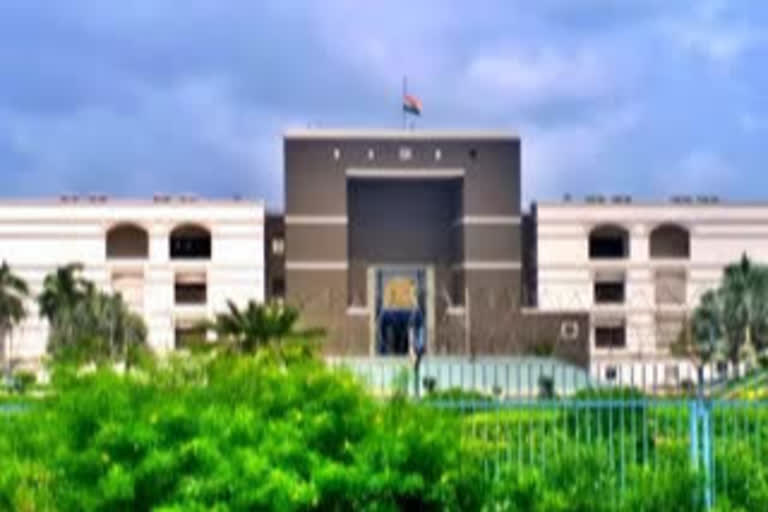Ahmedabad (Gujarat): In a setback to the state government, the Gujarat High Court, on Thursday, stayed the operation of some sections related to interfaith marriages of the state's new anti-conversion law. A division bench comprising Chief Justice Vikram Nath and Justice Biren Vaishnav said the interim order has been passed to protect people from unnecessary harassment.
An application has been filed in the High Court against the Freedom of Religion Act (Law of Love-Jihad) enacted by the Gujarat government last April. The Gujarat High Court has held another hearing on the petition.
The High Court has placed a restraining order on the implementation of certain Sections of the Act. The High Court has issued a restraining order on the implementation of the amendments made in the matter of marriage in Sections 3, 4, 5 and 6 of the Gujarat Freedom of Religion (Amendment) Act.
The High Court has observed that FIRs cannot be made on the basis of marriage alone in cases of inter-religious marriage. An FIR cannot be filed without proving that the marriage was solemnized by force, coercion or greed.
Last month, the Gujarat chapter of the Jamiat Ulema-e-Hind had filed a petition, claiming that some of the amended sections of the state's new law were unconstitutional.
Read: Gujarat HC dismisses ex-IPS officer Sanjiv Bhatt's revision plea in NDPS case
On Thursday, Chief Justice Nath said, "We are of the opinion that pending further hearing, rigors of section 3,4, 4a to 4c, 5, 6, and 6a shall not operate merely because the marriage is solemnised by a person of one religion with another religion without force, allurement or fraudulent means and such marriages cannot be termed as marriage for the purpose of unlawful conversion." "This interim order is to protect the parties which solemnised interfaith marriages from unnecessary harassment," he added.
The stay on these sections effectively means that an FIR under this law cannot be lodged merely on the basis of his or her interfaith marriage. When state Advocate General Kamal Trivedi sought a clarification, saying what if a marriage results in forceful conversion, Chief Justice Nath said, "There has to be a basic element of force or allurement or fraud. Without that you will not (proceed), that's all we have said in the order."
Mujahid Nafees, a petitioner in the court told the media on the issue, that "The Gujarat government in April had passed the Freedom of Religion Bill which they have wrongly termed as Love Jihad Act. So we challenged this law in the Hon'ble High Court. The main basis of which is the right to personal freedom, the right to choose and the right to freedom of religion enshrined in the Constitution of India. The bill passed by the state government completely violated these three freedoms. The bill mentioned that if people of any two religions want to get married, it is mandatory to seek the approval of the Collector. But which religion would the two adults follow, and with whom would they marry? His freedom is already enshrined in the constitution but the anti-conversion law violated that freedom."
Read: Gujarat HC asks MLA if he supports externment order against man after tiff with son
Main Provisions of the Gujarat Religion Freedom (Amendment) Act 2021
- Forcible religious conversion of any woman is considered a crime.
- If crime is proved the accused will be sentenced to 5 years imprisonment and a fine of not less than Rs 2 lakh as per the amendment act.
- If the victim is a minor or is she is from Scheduled Caste or Scheduled Tribe, the accused will be put in jail for 7 years and a fine of not less than Rs 3 lakh will be imposed.
- If any organization, body or group is found to be involved, it will be included as accused in the charge sheet. If complicity is proved then members or office bearers of such organization will face imprisonment of 3 to 10 years and a fine of Rs 5 lacs.
- Any close relative, a blood relative of the victim would be able to file a complaint.
- Action will also be taken against those found to be helpful in such inter-religious marriage.
- Action will also be taken against the organization or institution for arranging such marriage.
- The offence under this law is non-bailable.
- The case will be investigated by the DSP (District Superintendent of Police) or DYSP.
With Agency Inputs



